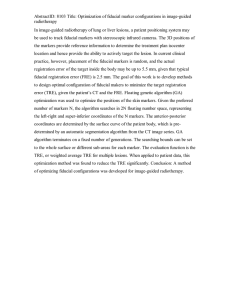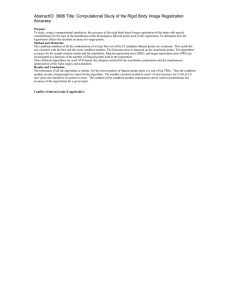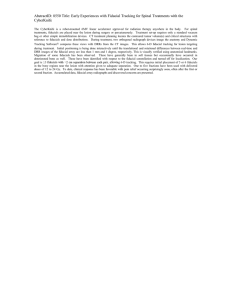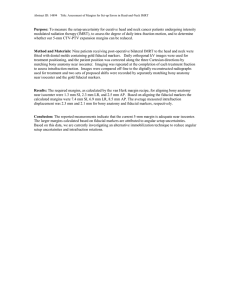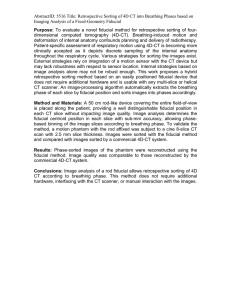AbstractID: 8059 Title: Verification of optimal fiducial marker configurations in... guided radiotherapy
advertisement
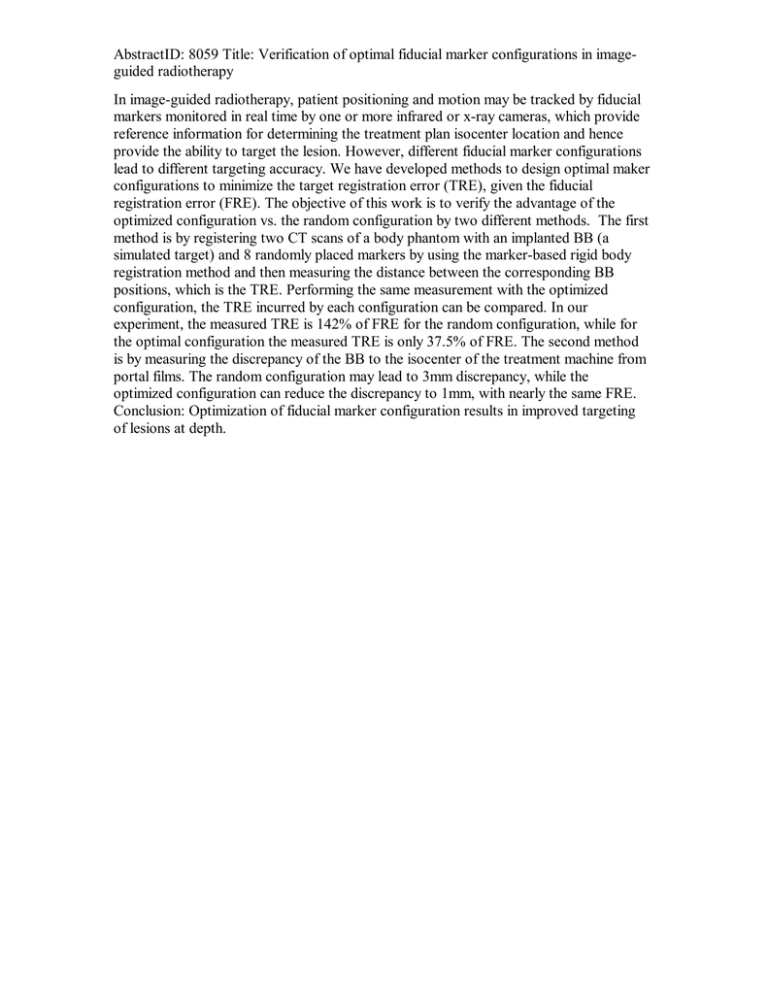
AbstractID: 8059 Title: Verification of optimal fiducial marker configurations in imageguided radiotherapy In image-guided radiotherapy, patient positioning and motion may be tracked by fiducial markers monitored in real time by one or more infrared or x-ray cameras, which provide reference information for determining the treatment plan isocenter location and hence provide the ability to target the lesion. However, different fiducial marker configurations lead to different targeting accuracy. We have developed methods to design optimal maker configurations to minimize the target registration error (TRE), given the fiducial registration error (FRE). The objective of this work is to verify the advantage of the optimized configuration vs. the random configuration by two different methods. The first method is by registering two CT scans of a body phantom with an implanted BB (a simulated target) and 8 randomly placed markers by using the marker-based rigid body registration method and then measuring the distance between the corresponding BB positions, which is the TRE. Performing the same measurement with the optimized configuration, the TRE incurred by each configuration can be compared. In our experiment, the measured TRE is 142% of FRE for the random configuration, while for the optimal configuration the measured TRE is only 37.5% of FRE. The second method is by measuring the discrepancy of the BB to the isocenter of the treatment machine from portal films. The random configuration may lead to 3mm discrepancy, while the optimized configuration can reduce the discrepancy to 1mm, with nearly the same FRE. Conclusion: Optimization of fiducial marker configuration results in improved targeting of lesions at depth.
